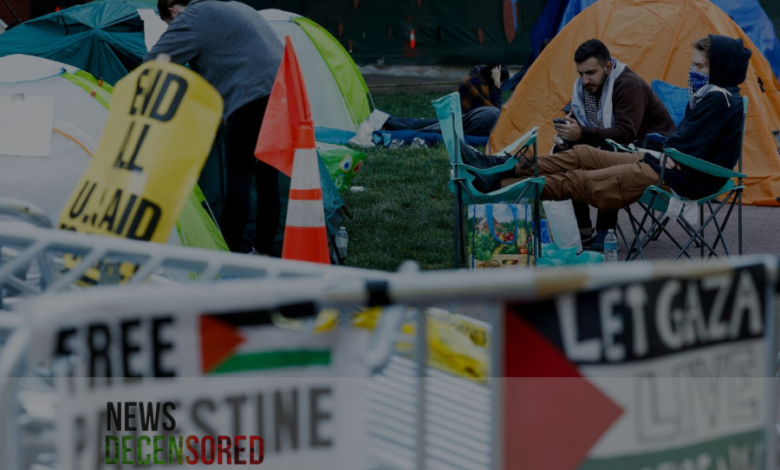Republican Legislators Introduce Bill Targeting Gaza Solidarity Encampments on US Campuses

Republican legislators have recently presented a bill to ensure that US universities reveal their policies on addressing Gaza solidarity protests, which have increased the number of camp establishments in universities in recent months.
To this end, the Act aims to alter parts of the Higher Education Act of 1965, which would require federally funded universities to specify their plans for addressing civil unrest on their terrains.
Sponsored by Representatives Elise Stefanik, Republican of New York, and Jim Banks, Republican of Indiana, the bill fits in a broader context of an attempt by Republican members of Congress to focus on halting pro-Palestinian activities on college campuses that have gained momentum after Israel’s operation in Gaza starting in October last year.
Stefanik also focused on the legislation’s aim to counterproductive, which she referred to as disgraceful mob riots seen at institutions like Columbia University, noting the need to increase enforcement of measures against what she considered as hostile campus occupations.
Campus protests in support of Palestine began earlier this year with tent encampments being set up at eminent universities, including Columbia and Harvard University. They have grown beyond the national level and received recognition from the international community.
Regarded as one of the most significant movements against war and US military presence since the Vietnam War, the protests principally call for university funding and investment cuts in companies supporting Israel’s actions in Gaza, in which over nine months, the death toll among Palestinians has been high.
Due to these protests, several universities, especially Columbia and Emory University, employed the use of police force to disband the occupants, resulting in the arrest of students and some faculty members as well as casualties.
For example, at the end of April, compliant with the universities’ demands, the police arrested about 300 protesters across Columbia and City College of New York campuses. There were also reported cases of police brutality against the protesters and denial of access to other rights, such as access to medical care.
Originally, after these occurrences, most of the protesters in New York City were discharged by the prosecutors based on their discretion, which was compounded by the lack of adequate evidence.
On the other hand, Republicans have sharply condemned university leadership for their compromising stand on these protests. In December, the three institutions, Harvard, MIT, and the University of Pennsylvania, learned to defend themselves to Congress on their ability to address the subject matter of the student protest movement.
In the hearings sessions, the Republican legislators claimed that the university chiefs encouraged antisemitic conduct in their institutions by allowing Palestine solidarity protests.
The increased attention after the hearings led to the resignations of University of Pennsylvania President Liz Magill in December and Harvard President Claudine Gay in January.




